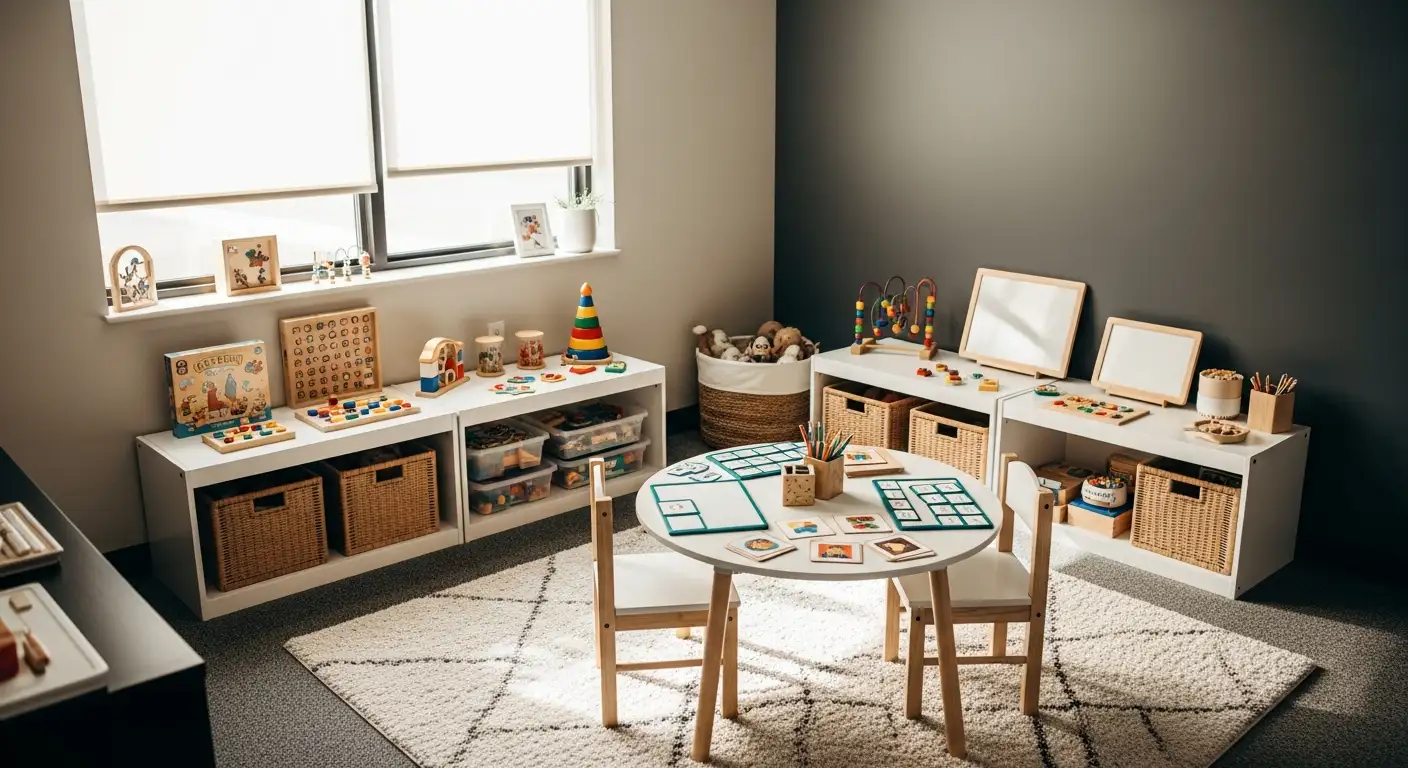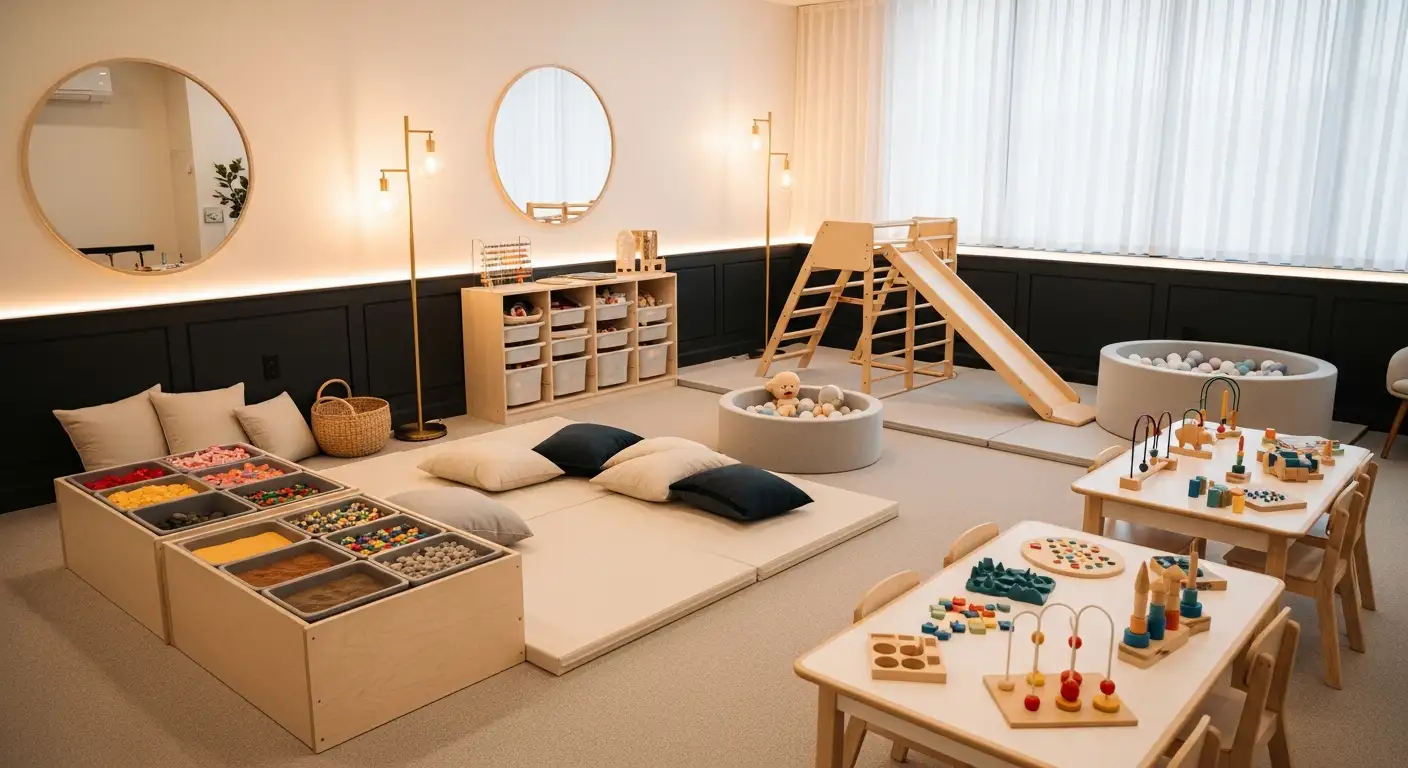Benefits of Recreational Therapy for Autism


Unlocking Potential with Recreational Therapy
Recreational therapy offers a promising, evidence-based approach to support individuals with autism in developing essential social, emotional, motor, and cognitive skills. By integrating structured recreational activities into treatment plans, professionals can foster independence, improve mental health, and enhance overall quality of life for those on the autism spectrum.
Evidence-Based Foundations of Autism Treatment
How does recreation help children with autism participate in activities they enjoy?
Recreation provides children with autism the chance to engage in activities they find enjoyable, fostering a sense of satisfaction and personal accomplishment. By starting with one activity at a time and involving children in choosing their interests, caregivers can build meaningful experiences that promote ongoing participation.
In what ways does recreation improve the quality of life for children with autism?
Engaging in recreational activities enhances overall well-being by supporting physical health, emotional resilience, and social connection. It helps children develop confidence and a sense of belonging within their community, making daily life more enjoyable and meaningful.
How can recreational activities help practice social skills and promote self-expression?
Activities such as team sports, music, art, and dance create natural environments for social interaction, encouraging children to communicate, collaborate, and express themselves creatively. Visual supports and structured adaptations further facilitate communication and reduce anxiety, leading to increased engagement.
What benefits do recreational activities offer for mental and physical health?
Participation in physical activities like swimming, sports, and gardening can improve strength, coordination, and endurance, while also reducing stress and symptoms related to anxiety and depression. These activities support holistic health, nurturing both body and mind.
How do therapeutic recreational activities build independence?
Structured programs focusing on motor, organizational, and social skills enable children to perform daily tasks with greater independence. Adaptive environments and personalized goals help foster self-confidence, self-advocacy, and a positive outlook on their abilities.
What role does recreational therapy play in social development?
Organized programs promote interaction with instructors, peers, and other children, teaching social reciprocity and cooperation. These experiences often lead to the formation of friendships and improved social participation, which are vital for integration into the community.
How does participation support emotional and behavioral progress?
Recreational activities can decrease challenging behaviors by providing positive outlets for energy and emotion. They also help reduce symptoms of social withdrawal and improve emotional regulation, contributing to better mental health.
Examples of recreational activities used in therapy?
Popular therapeutic activities include music therapy, art therapy, aquatic therapy, horseback riding, karate, dance, and movement therapy. Each modality targets specific developmental areas such as sensory regulation, communication, motor skills, and self-esteem.
Summarizing the impact of recreation on children with autism
Overall, recreation enriches the lives of children with autism by developing social, emotional, motor, and cognitive skills. It can be a powerful supplement to other treatments, promoting a balanced, healthy, and joyful childhood.
The Role of Complementary Therapies in Autism Support
What role do complementary therapies like music, art, or animal therapy play in supporting individuals with autism?
Complementary therapies such as music therapy, art therapy, and animal-assisted therapies—including horseback riding—serve important roles in supporting children with autism. These approaches address diverse sensory, emotional, and social needs that often accompany autism spectrum disorder (ASD).
Music therapy, in particular, enhances mood, attention, and verbal skills. It helps children express themselves safely and develop communication abilities by engaging with rhythm, melody, and song. Art therapy increases self-esteem and understanding of social cues. It also fosters non-verbal expression and emotional regulation, enabling children to form more comfortable interpersonal relationships.
Animal-assisted therapies, like horseback riding, improve self-regulation and expressive language. They help develop motor skills and increase confidence through interactions with animals. Children often experience reduced anxiety and improved social engagement because animals provide unconditional acceptance and serve as calming companions.
While scientific evidence for some therapies varies, these activities are typically used alongside evidence-based treatments to enhance overall well-being. They promote emotional health, reduce anxiety, and boost social interactions, all of which are crucial for the growth of children with autism.
It is essential to implement these therapies under professional guidance to ensure safety and appropriateness. When used creatively and thoughtfully, they can significantly improve quality of life and support the developmental journey of children with ASD, complementing traditional medical and behavioral interventions.
Building Self-Confidence and Independence through Recreation

How can outdoor activities enhance self-confidence and independence in children with autism?
Engaging in outdoor activities like nature walks, bird watching, and adaptive sports offers children with autism a chance to improve their physical health and emotional regulation. These activities promote sensory integration and social interaction in a relaxed environment, helping children feel more comfortable and confident in their abilities. Regular participation can lead to a sense of achievement and increased independence as they learn new skills and navigate natural settings.
What role do creative pursuits play in boosting self-esteem?
Creative activities such as arts and crafts, making bird feeders, and participating in school plays or talent shows enable children with autism to express themselves freely. These pursuits provide positive experiences and social acceptance, which are crucial for building self-esteem. Completing a craft project or performing in front of an audience can foster a sense of pride and accomplishment, encouraging children to explore their talents further and develop confidence in their social interactions.
How do tailored programs address specific challenges to foster independence?
Personalized recreational programs designed to meet individual sensory, communication, and social needs create supportive environments for growth. These programs help children develop essential skills for everyday life, such as coordination, communication, and socialization, in a safe, structured setting. By focusing on their unique abilities and challenges, these tailored activities promote a sense of mastery and autonomy, helping children become more independent and integrated into their communities.
| Activity Type | Examples | Benefits |
|---|---|---|
| Outdoor activities | Nature walks, adaptive sports, gardening | Improve physical and emotional health, sensory integration |
| Creative pursuits | Arts and crafts, music, drama, making bird feeders | Enhance self-expression, boost confidence, foster social ties |
| Tailored programs | Sensory-friendly, communication-focused, social skills | Support skill development, address individual challenges, promote independence |
Participation in recreational activities tailored to each child's interests and needs helps them build vital life skills, improve social interactions, and gain a greater sense of independence.
Physical Therapy and Autism: Long-Term Benefits
What are the long-term benefits of physical therapy for children with autism?
Physical therapy offers many advantages that can positively impact children with autism over their lifetime. One of the main benefits is the improvement in motor skills, such as walking, running, and coordination. These skills are essential for daily activities and promote independence in everyday life.
Engaging in physical therapy regularly helps children develop better balance, posture, and endurance. These improvements not only support physical health but also boost confidence, encouraging children to participate more actively in social and educational settings.
The therapy process can also significantly enhance socialization and communication. As children progress in their gross motor abilities, they often feel more confident to join group activities, fostering friendships and social interactions.
Beyond motor skills, physical therapy contributes to overall health and well-being. It helps manage core symptoms of autism, like repetitive behaviors, and reduces difficulties in social engagement.
Through targeted exercises and supportive strategies, children can achieve better motor mastery and play skills, which are vital in building a balanced, engaging life.
The long-term commitment to physical therapy often guides families on how to incorporate ongoing physical activity at home and in community settings. This continuous engagement promotes a healthier lifestyle, supports emotional resilience, and enhances quality of life.
In summary, sustained physical therapy contributes to improved motor function, social confidence, and overall health—key factors for helping children with autism lead more independent and fulfilling lives.
Recreational Therapy's Impact on Social Skills Development

How does recreational therapy support social skills development in children with autism?
Recreational therapy plays a significant role in helping children with autism develop vital social skills. By engaging children in activities they enjoy, such as sports, music, art, pet interactions, and group games, therapy creates opportunities for practicing communication, cooperation, and social interaction.
These activities foster a sense of belonging and build self-confidence as children learn to interpret social cues, express themselves, and engage with peers in a supportive environment. To make these activities more accessible and reduce anxiety, therapists often incorporate visual supports and structured adaptations. These tools help children understand expectations clearly and feel more comfortable participating.
Participation in organized recreational programs enhances social reciprocity and peer engagement. Children learn important social roles like teamwork, sharing, and sportsmanship through consistent practice. Such involvement not only improves social interaction but also supports emotional well-being and independence.
Overall, recreational therapy creates a fun and safe space for children with autism to develop crucial social skills. It leads to better peer relationships, increased self-esteem, and a greater sense of community, all while positively impacting their mental and physical health.
| Activity Type | Purpose/Benefits | Adaptive Strategies or Supports |
|---|---|---|
| Sports (e.g., tennis, swimming) | Improve coordination, socialization, confidence | Visual cues, one-on-one support, structured routines |
| Arts and Music | Enhance self-expression, social communication | Clear instructions, sensory-friendly environments |
| Pet Interaction | Foster empathy, responsibility, social bonding | Supervised interactions, gentle animals |
| Group Games and Activities | Build teamwork, cooperation, social reciprocity | Visual supports, adapted rules, peer mentoring |
This diverse range of activities provides children with autism positive, therapeutic experiences that build social skills, confidence, and overall well-being.
The Holistic Impact of Recreational Therapy on Life Quality and Well-being

How does recreational therapy enhance the overall quality of life for individuals on the autism spectrum?
Recreational therapy plays a vital role in improving the overall life quality of children and adults with autism. By engaging in activities such as sports, music, art, gardening, and dancing, individuals can develop important life skills while experiencing enjoyment and satisfaction.
Participation in recreational programs fosters enhanced social skills, including communication, cooperation, and understanding of social norms. These activities also promote independence, allowing participants to manage daily tasks more effectively and confidently.
Emotionally, recreational therapy helps reduce stress, anxiety, and behavioral challenges. Visual supports, structured routines, and adaptive modifications make activities more accessible, minimizing feelings of frustration and fear. As a result, individuals often show increased self-confidence and emotional resilience.
Evidence shows that tailored recreational interventions can lead to decreases in core autism symptoms, notably in social interaction and communication skills. Creative outlets like music and art allow expressive self-awareness, which contributes to emotional health.
Moreover, these programs benefit families by decreasing parental stress and increasing positive interactions. Organized recreational activities provide parents with opportunities to observe progress and learn effective strategies to support their loved ones.
Overall, recreational therapy offers diverse, personalized experiences that promote lifelong engagement, physical activity, and mental well-being. By fostering social inclusion and independence, these activities help individuals on the autism spectrum lead more fulfilling, integrated lives.
Fostering Growth and Inclusion
Recreational therapy stands as a powerful, versatile tool in autism support, promoting a holistic approach to development. It not only enhances social, emotional, and physical skills but also empowers individuals with autism to lead more independent, confident, and fulfilling lives. By integrating a variety of activities tailored to individual needs, recreational therapy fosters inclusion, well-being, and lifelong health, ultimately helping individuals on the spectrum unlock their full potential.
References
- Recreational Therapy For Children With Autism
- Exercise to Improve Socialization, Self-confidence, and Independence
- Top 10 Benefits of Organized Recreation Programs for Children with ...
- Recreational Activities for Children with Autism
- How Students with Autism Benefit from Art, Music, and Recreational ...
- [PDF] The effect of the therapeutic recreation program for children with ...
- Recreational Therapy Month: Building on the strengths of youth ...
Recent articles

Expressive Speech Delay 2-Year-Old
Understanding and Addressing Expressive Speech Delay in Toddlers

How Speech Recognition Works
Unlocking the Power of Speech Recognition in Therapy and Healthcare

Autism and Head Size
Understanding the Complex Relationship Between Autism and Head Size

Occupational Therapy in Autism
Enhancing Independence and Quality of Life Through Occupational Therapy in Autism

Do Autistic People Understand Sarcasm?
Navigating the Nuances: Understanding Sarcasm and Social Communication in Autism

Autism Routines
Crafting Effective Daily Structures for Children with Autism

